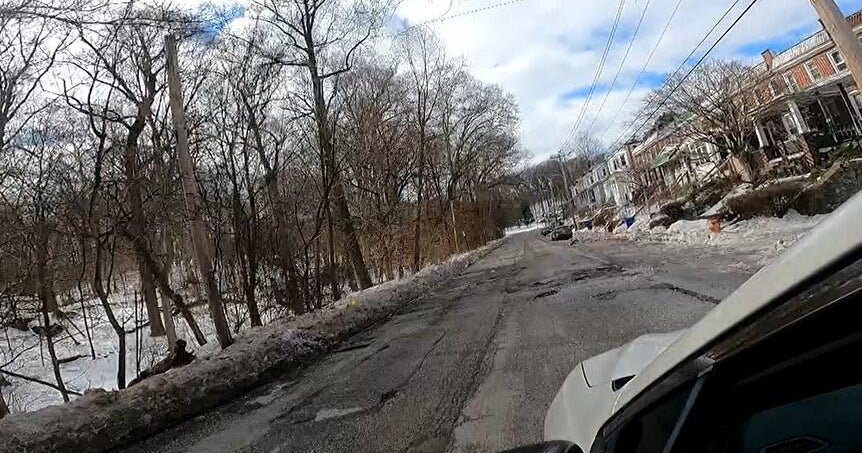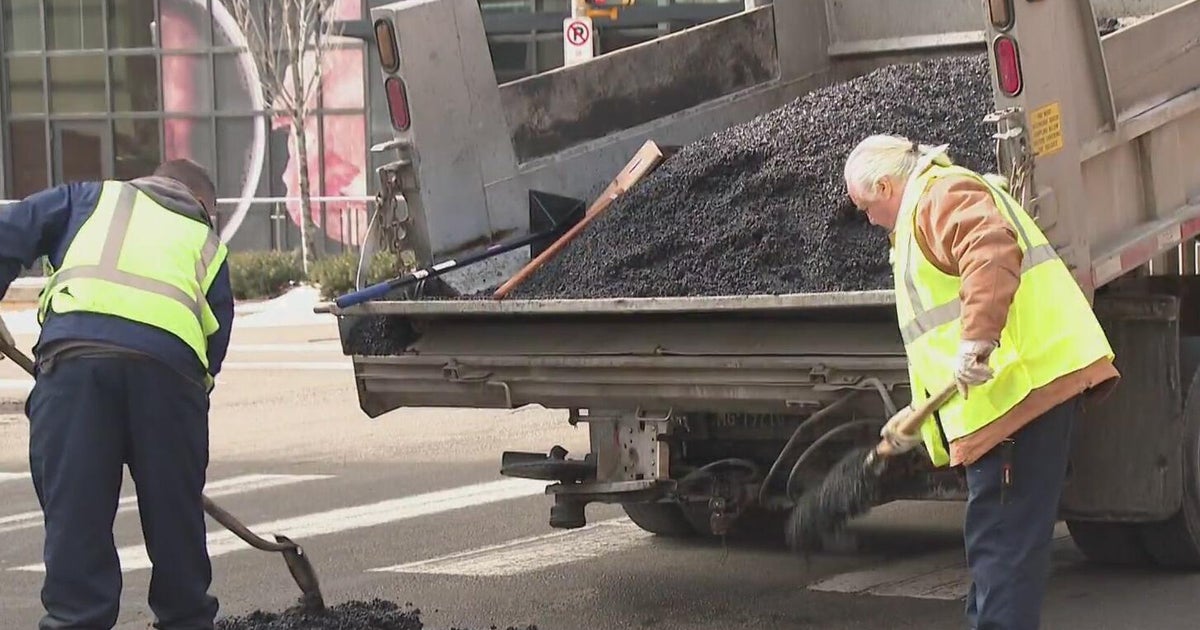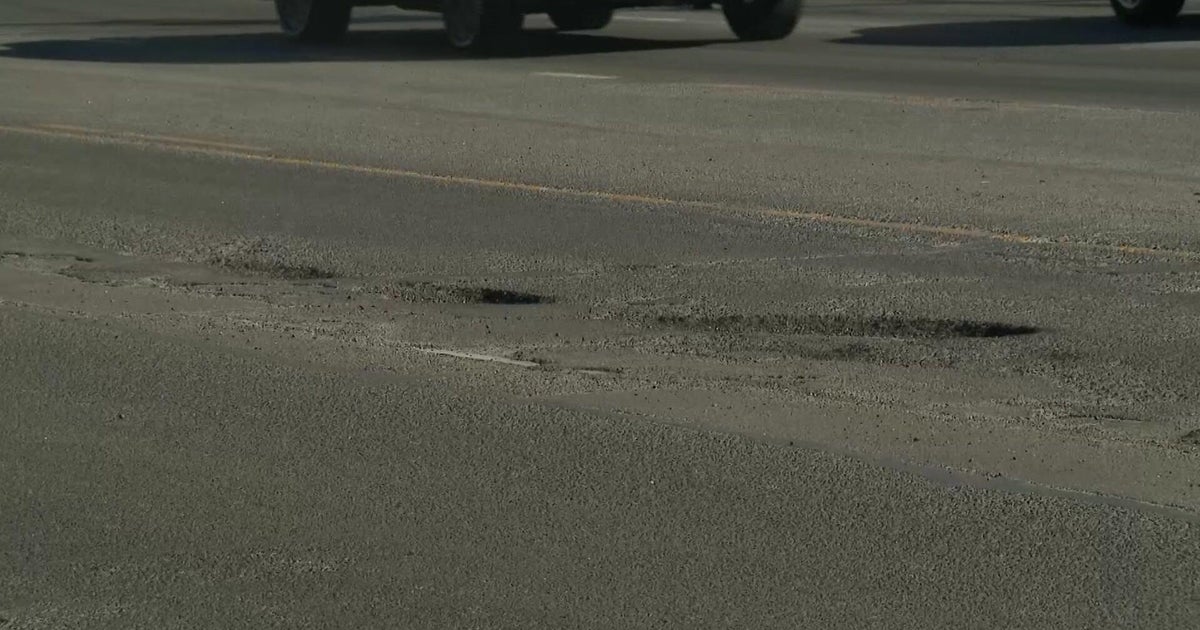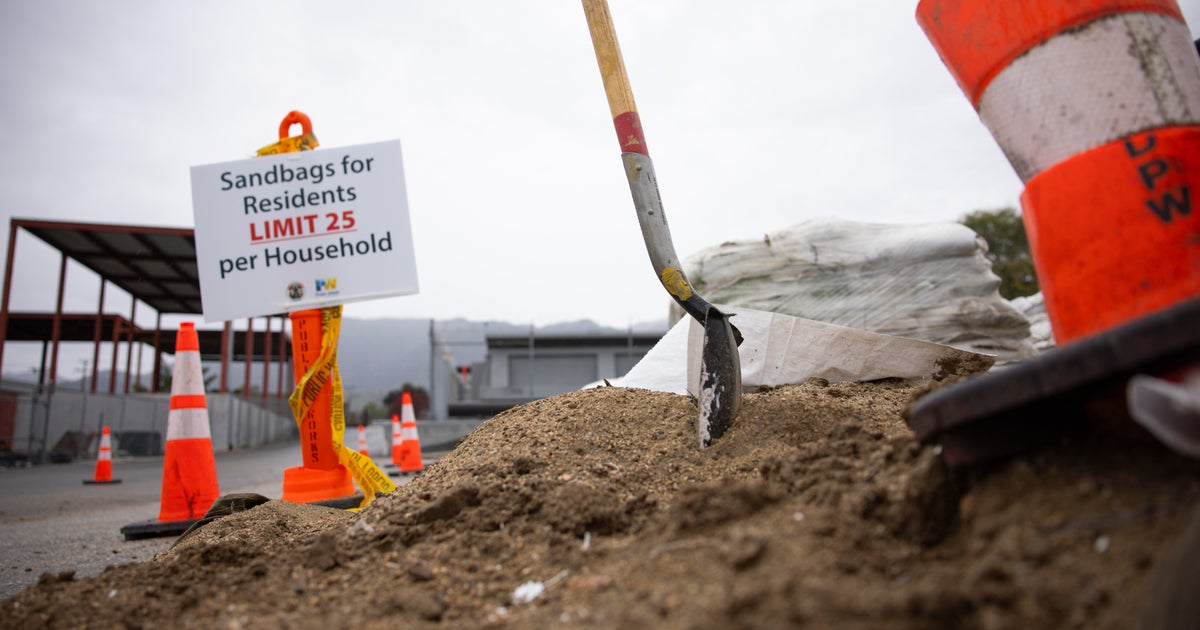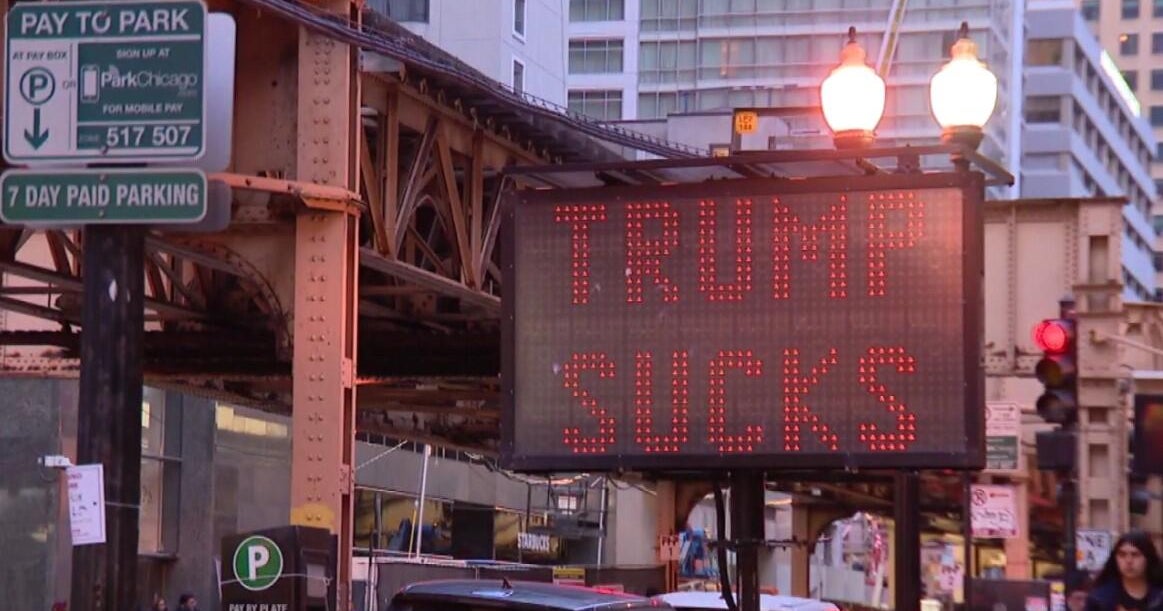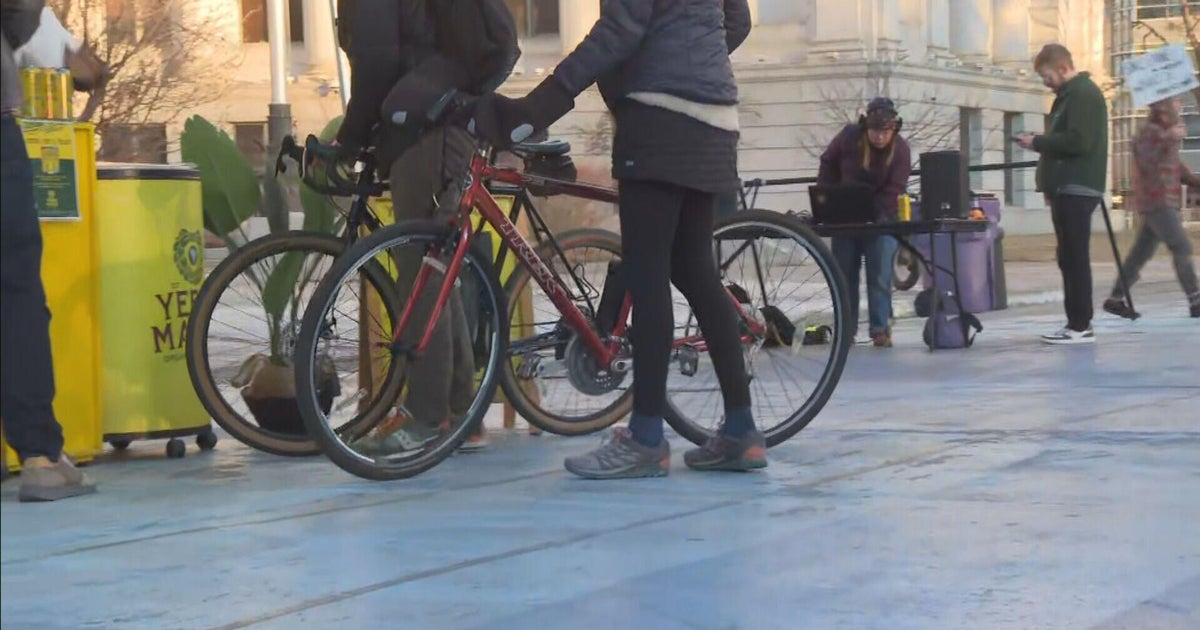Mild Winter, New Tactics Help City Cut Down On Potholes
CHICAGO (CBS) -- February is usually prime time for potholes, but the Chicago Department of Transportation said Wednesday that it has all but eliminated the backlog of pothole repair requests dating back three months.
As WBBM Newsradio's Bob Roberts reports, the backlog was huge in November, when it stood at more than 7,000. On Wednesday, CDOT Commissioner Gabe Klein said the backlog has dropped to fewer than 300.
Klein said the mild weather deserves some of the credit, but so do changes in the way crews work. The most notable change is having crews focus on filling potholes for eight hours a day instead of running back and forth to city yards to get hot asphalt.
"The asphalt companies will bring it to us for a small charge," he said.
LISTEN: WBBM Newsradio's Bob Roberts reports
Podcast
Klein said the deliveries allow crews to patch and pave for eight hours a day, instead of an average of six hours daily under the old system, and save thousands of dollars each week while paving more than ever before.
"With 17 to 20 crews, you're talking about a couple hundred people a day spending their time going to get asphalt. Just eliminating that step allows them to be on the streets two hours more a day," Klein said.
As CBS 2's Roseanne Tellez reports, another change is that the city used to fill potholes on the streets and in alleys separately, which often sent crews to the same neighborhood twice.
"Now, when the crews go out, they're hitting all forms of potholes at once," Klein said.
Even though city officials said they've caught up on the backlog of pothole repair requests, drivers weren't convinced potholes are under control.
"Tell them to come down Leavitt, yeah. Give me the number," said driver Darrin Vaught as he drove along a pothole-plauged street in Roscoe Village.
"Even though it hasn't been a tough winter, shall we say, they're still not all going to be fixed," driver Reyna Hoerdeman said. "You're never gonna catch up completely, but I would say maybe better this year than last."
Klein said now, potholes can be filled within 2-1/2 days of the time they are reported, although he said that estimate is good only until the next snowstorm of consequence.
He credited the mild winter with helping the city catch up with pothole repairs.
"Our pothole numbers are steadily going down, because the patches are holding," Klein said. "There's a number of factors that go into things working better."
Klein said the complaints have dropped drastically, and said he expects to be able to begin the city's spring paving program earlier and in more places than in years past.
He said the program is effective only if potholes are reported. He said that can be done by calling the city's 311 non-emergency number, by reporting it on the city's website, at which you can attach a photo of the pothole, or through CDOT's Twitter page.
"We can use the public's help, because with 4,000 lane miles out there, it's hard for us to be everywhere, even with 17 to 20 crews," Klein said.
